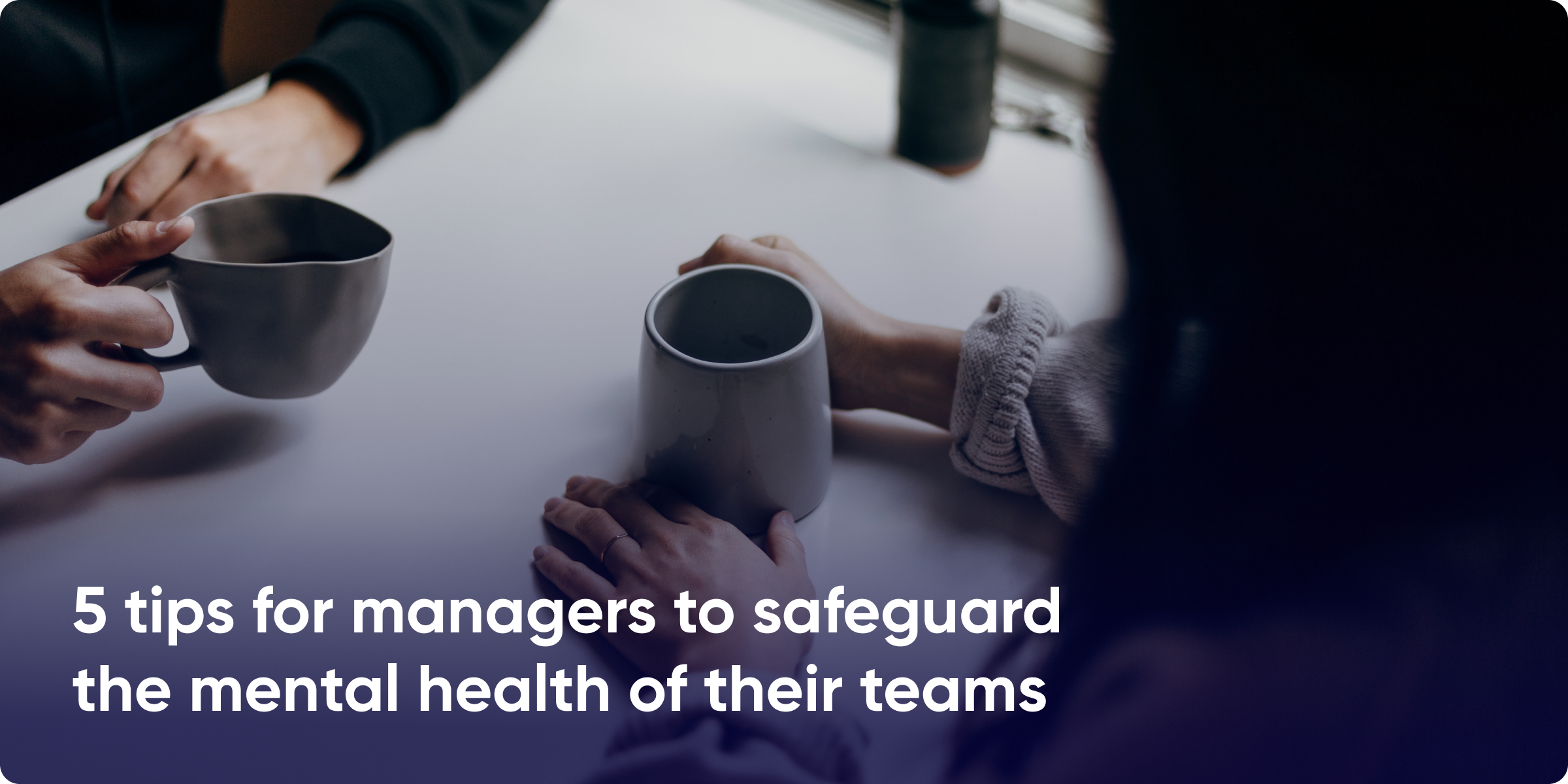5 tips for managers to safeguard the mental health of their teams
Learning Innovation

In September 2020, the term “anxiety” was searched for 40,500 times on Google, a query that increased by more than 50% compared to the previous year. Today, the trend is confirmed. After two years of living under the impact of health restrictions and vaccine rebounds, the anxiety-inducing climate is affecting the mental health of the French and, therefore, of employees.
According to the most recent survey on the subject conducted by CoviPrev, 26% of French people suffer from anxiety, a level 12 points higher than in 2020. The study also points out that nearly 3 out of 4 French people reported sleep problems in the week preceding the survey.
While the lockdown had a dramatic effect on the mental health of some, it also allowed others to refocus on themselves, and to better take into account their personal needs. According to Brigitte Joubert, psychologist and consultant for the Positive You platform, “the lockdown has put the quest for well-being back at the forefront”.
This sought-after well-being not only has positive consequences for the individual, but also for the company! If an individual is less anxious, more serene, then he or she will be more effective at work. Thus, the question of well-being at work, beyond being a social issue to be taken seriously, is also a real vector for growth and productivity. A study by the Department of Economics at the University of Warwick in England concludes that being happy at work could on average increase employee productivity by 12%.
Discover 5 tips to successfully preserve the psychological well-being of your employees as a manager:
-
Adopt a daily attitude of listening
The way people are treated and led on a daily basis is central to their mental wellbeing and commitment. So it is important to listen to your team.
Maintaining a mentally healthy workplace also means responding to mental and physical health, safety and well-being issues in and because of the work environment on an ongoing basis. Talking about your mental health is your choice, and you don’t have to talk about it in the workplace if you don’t want to. However, if your mental health is significantly affecting your work, it is best to tell your employer. In this case, it is the same as reporting a physical health problem.
-
Taking care of your own mental health
It can be helpful for employees to see their managers prioritising their own mental health as well. This creates a culture within the organisation where everyone is allowed to look after their own wellbeing. Managers need to adopt healthy behaviours, such as exercising during the day, openly expressing gratitude for things that are working well and having their boundaries and including equal consideration for physical or mental health issues in their speech or attitude.
-
Be available to listen to your employees
If you spot signs of mental ill health, you should start a conversation with your employee. Opening questions could include:
– “How are you doing at the moment?”
– “You seem a bit down. Is everything okay?”
– “I noticed you’ve been coming in late recently and I was wondering if you were okay?”
– “Is there anything I can do to help? ”
Ask the person if they would like to talk – if they refuse, make it clear that you are available if and when they need you.
-
Be proactive in finding solutions
To help an employee with mental health problems, make sure you focus on what can be done. Take a proactive and positive approach.
If you are not sure what to do, discuss it with those around you, your line manager or your mental health support provider to share ideas about what is possible and how you could help.
To find all the best practices to adopt to ensure the mental health of your employees, discover the eponymous course co-published by Video Arts.


